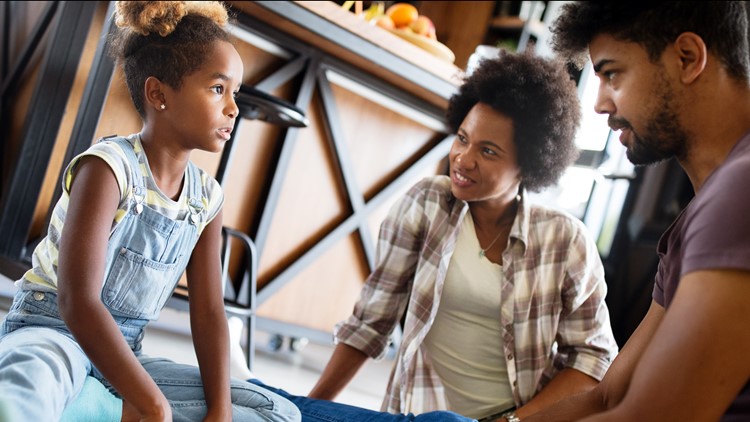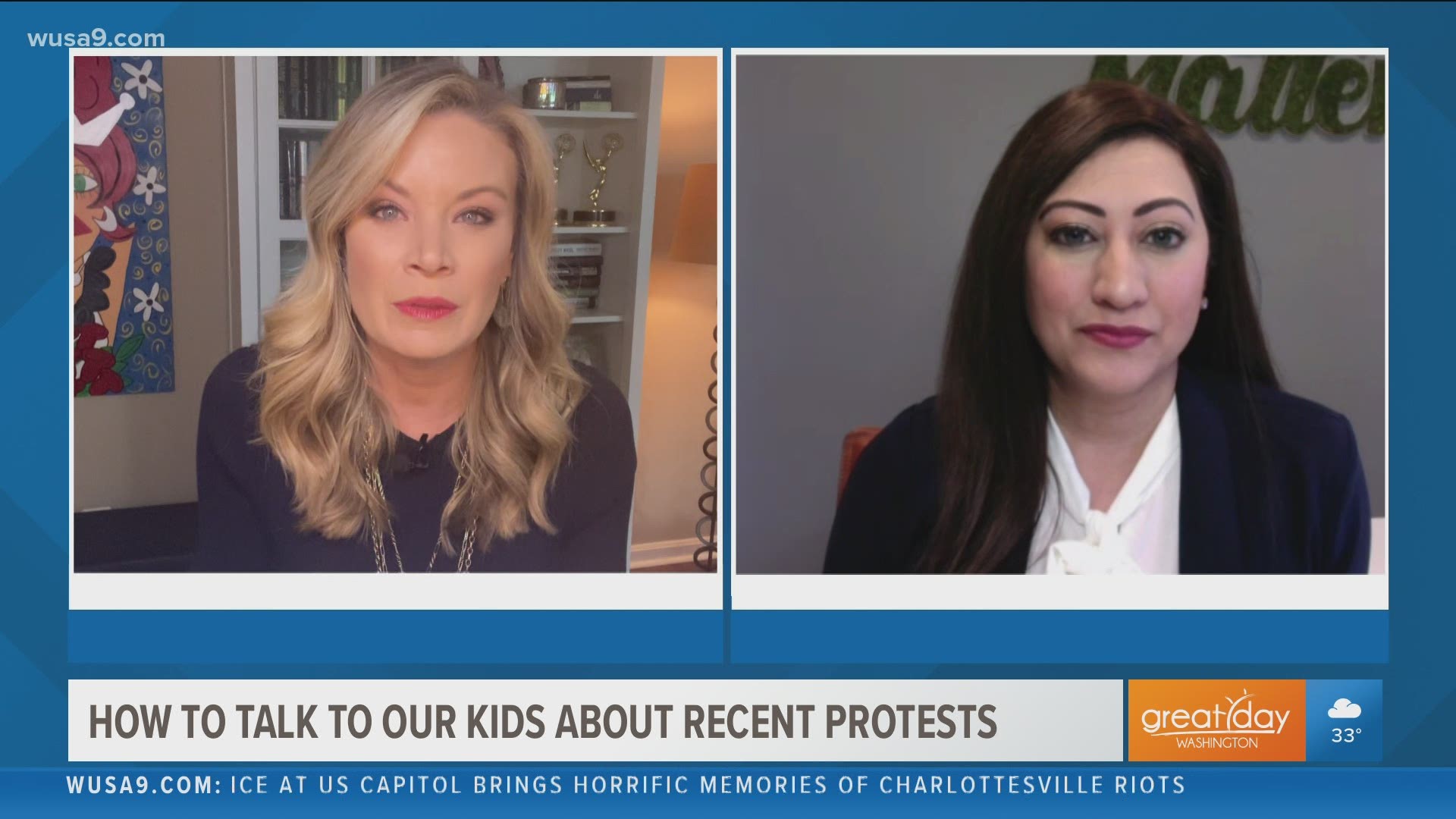WASHINGTON, D.C., USA — From Black Lives Matter to the recent attack on the US Capitol Building, our screens have been filled with images of protests, divisiveness and violence. These can all be hard for us as adults to comprehend. Imagine how our children are feel not being able to understand.
So, how do we talk to our kids about all of this?
We enlisted the help of Reena B. Patel (LEP, BCBA), a parenting expert, licensed educational psychologist, and board-certified behavior analyst, to get some advice on how to explain this to our children, have a conversation... and be prepared to answer some tough questions.
"What we saw even as adults was a scary moment. So as parents, I want you to take a little time to process just what you saw. Then I want you to take some time and check in with your children."
1. Make sure they feel safe
This is first and foremost. It's so important that they know that, yes, this happened, and there was hate and violence and vandalism but they themselves are safe
2. Be open and honest
By doing this, we help prepare them to challenge these issues when they arise.
3. Model it
Talking to your child about the importance of embracing differences and treating others with respect is essential, but it’s not enough. Acknowledge difference and emphasize the positive aspects of our differences Encourage your child to talk about what makes him different, and discuss ways that may have helped or hurt him at times. Similarities become more powerful. Remember silence indicates acceptance
4. Violence is NEVER the answer
Communication is always key, urge your children to communicate their frustration and debate, but this frustration should never turn into violence.
I do believe our children have this great moral compass… they knew that was wrong. So use this opportunity to ask them so what would you do in this situation? How would you make your voice heard?
5. Talk about history
Sometimes this gets lost, discuss the struggles and everything that has lead to the now.
Use this as a teachable moment. Talk about what Democrary means, the history of voting, the words of The Pledge of Allegiance and perhaps, what work gets done inside those monumental buildings we see on our screens..
6. Instill respect
No matter our views, everyone is different. Teach our children to always respect differences. In life we all disagree. That’s what so amazing about being an individual and having unique thoughts and opinions, but what do we do with that? There has to be a line. It’s okay to disagree. The how do we voice our opinion in an appropriate way. The bottom line is have empathy, compassion and kindness. Just because your bringing your thoughts forward doesn't mean you need to put someone else down by doing so
7. For teens- keep talking
Use current issues from the news, as a springboard for discussion. Ask your teen what she thinks about the issues. Discuss the importance of valuing differences is essential, but modeling this message is even more vital. Evaluate your own circle of friends or the beliefs you hold about certain groups of people.
8. Encourage activism
Promote ways for your family to get involved in causes you care about, safely and in a constructive way.
For more information and parenting tips, visit ReenaBPatel.com




